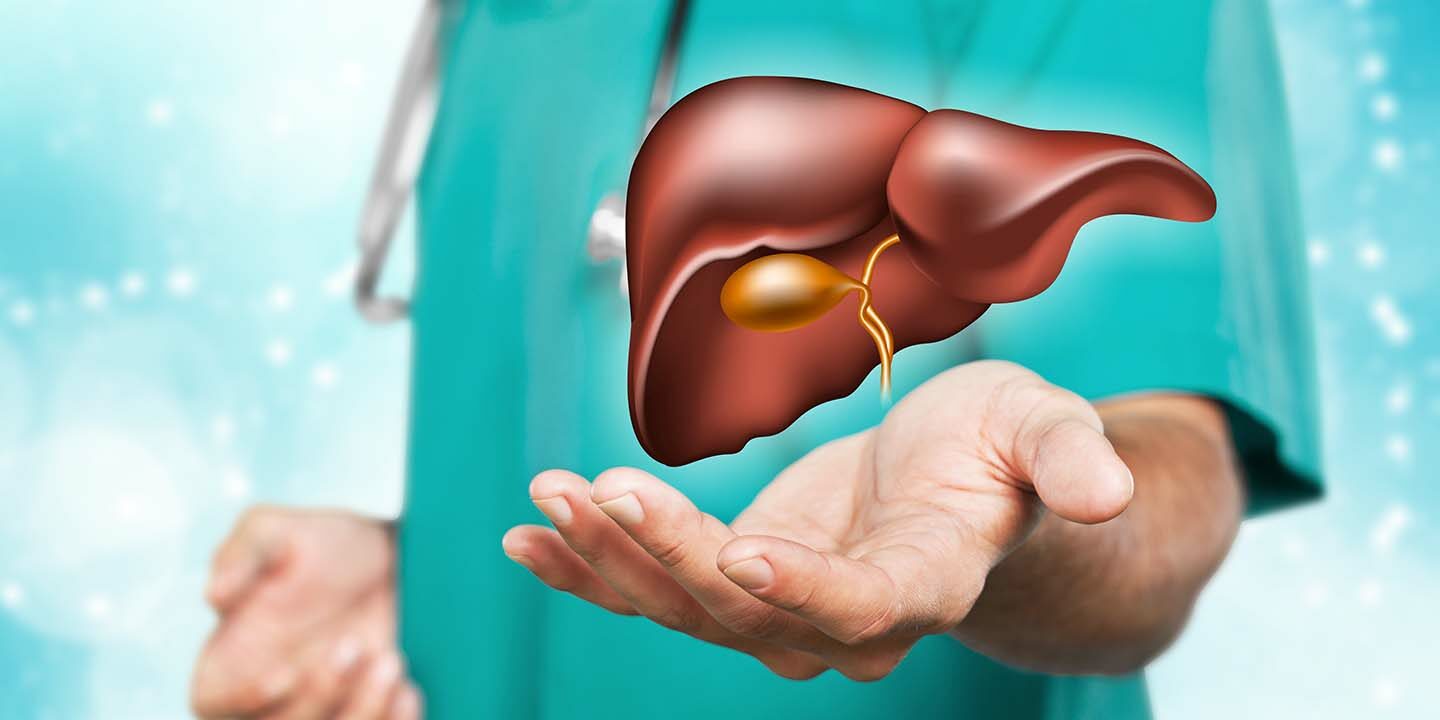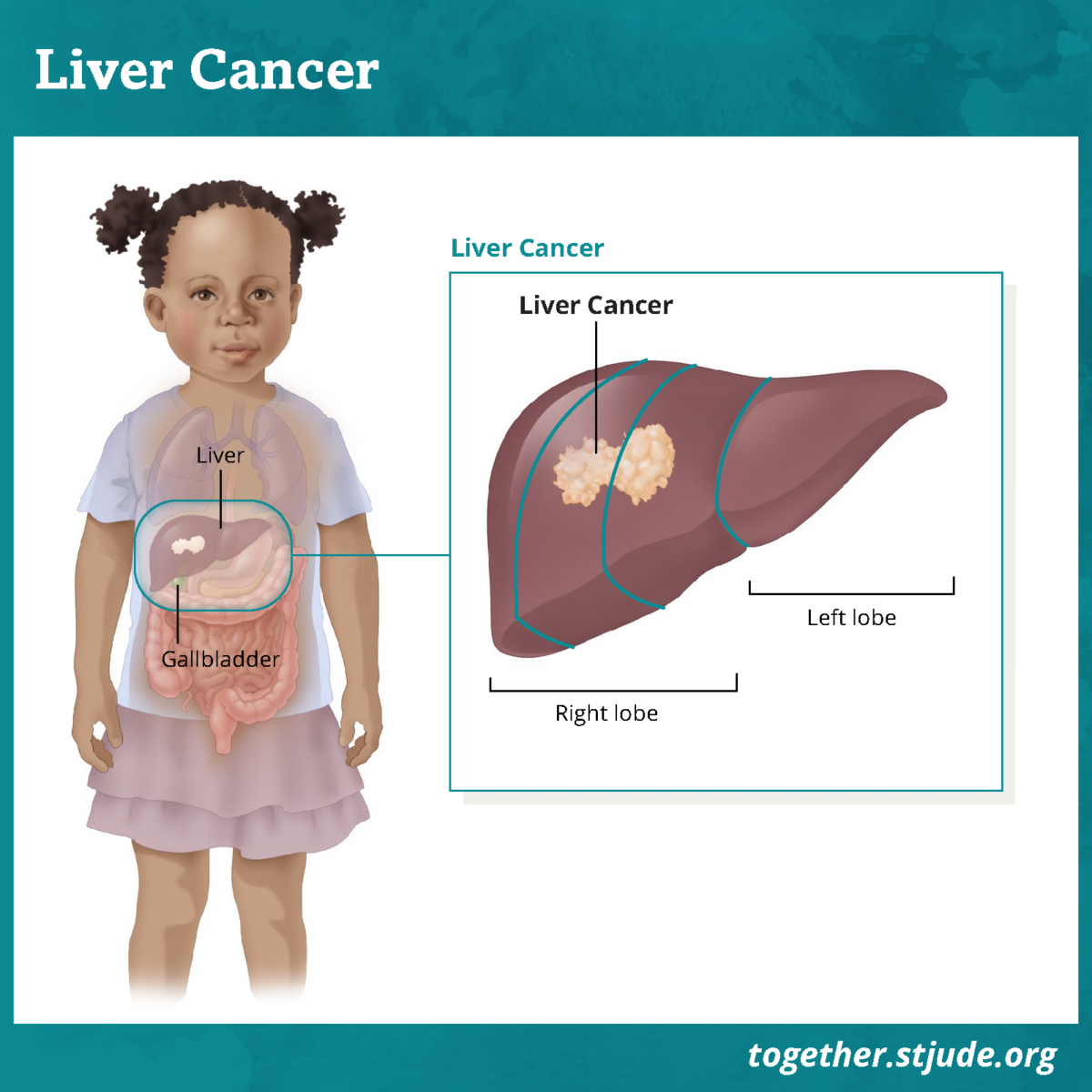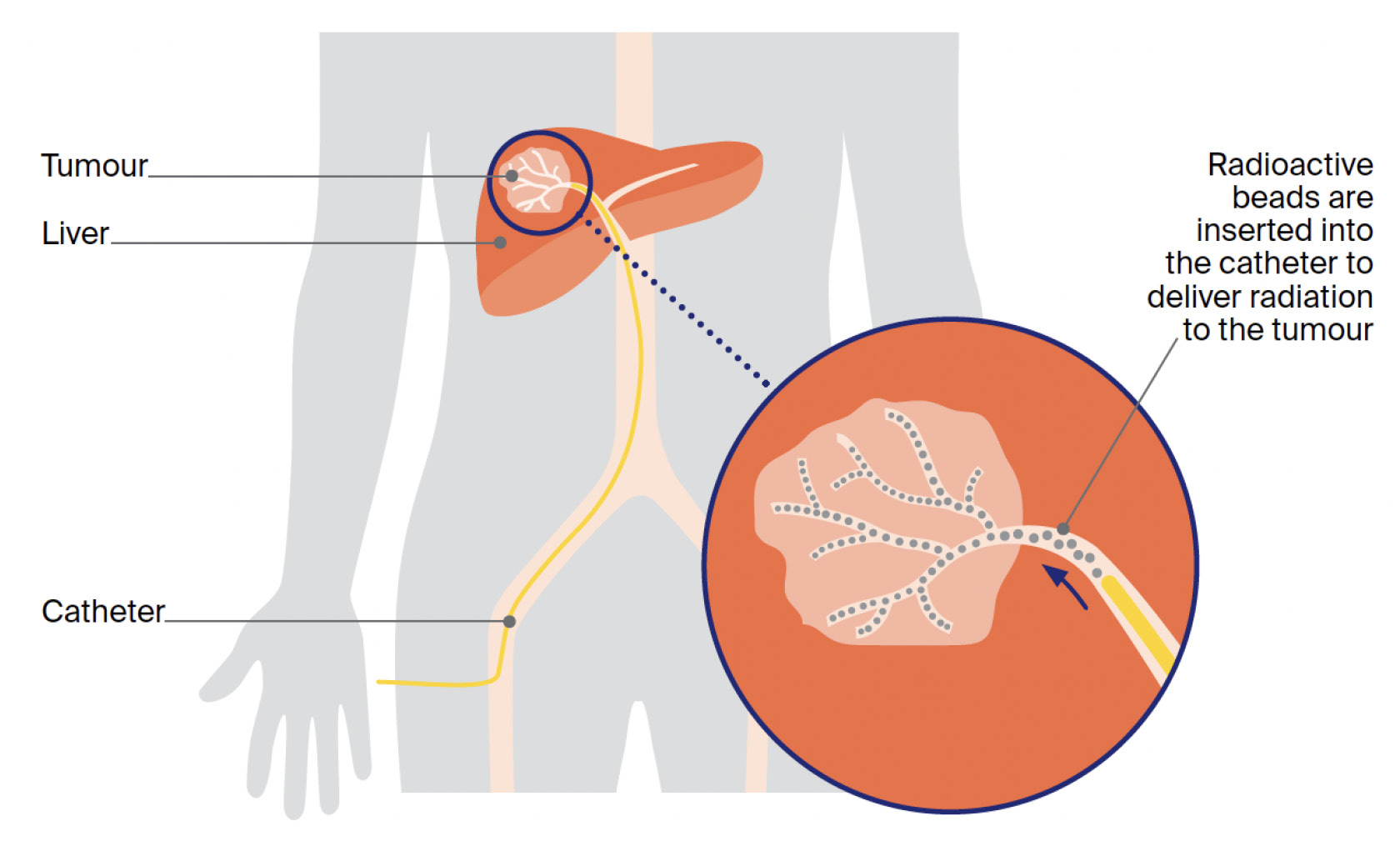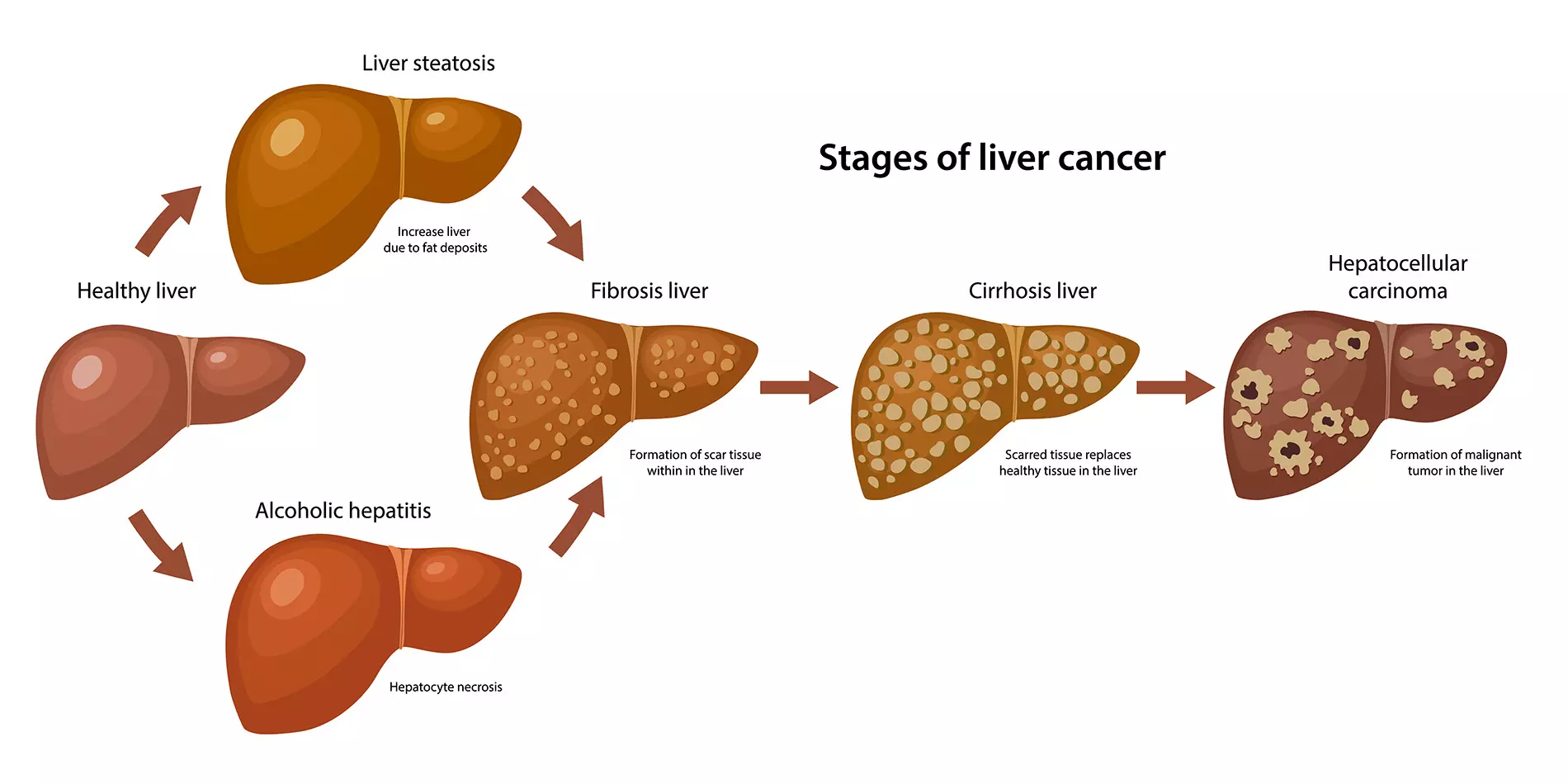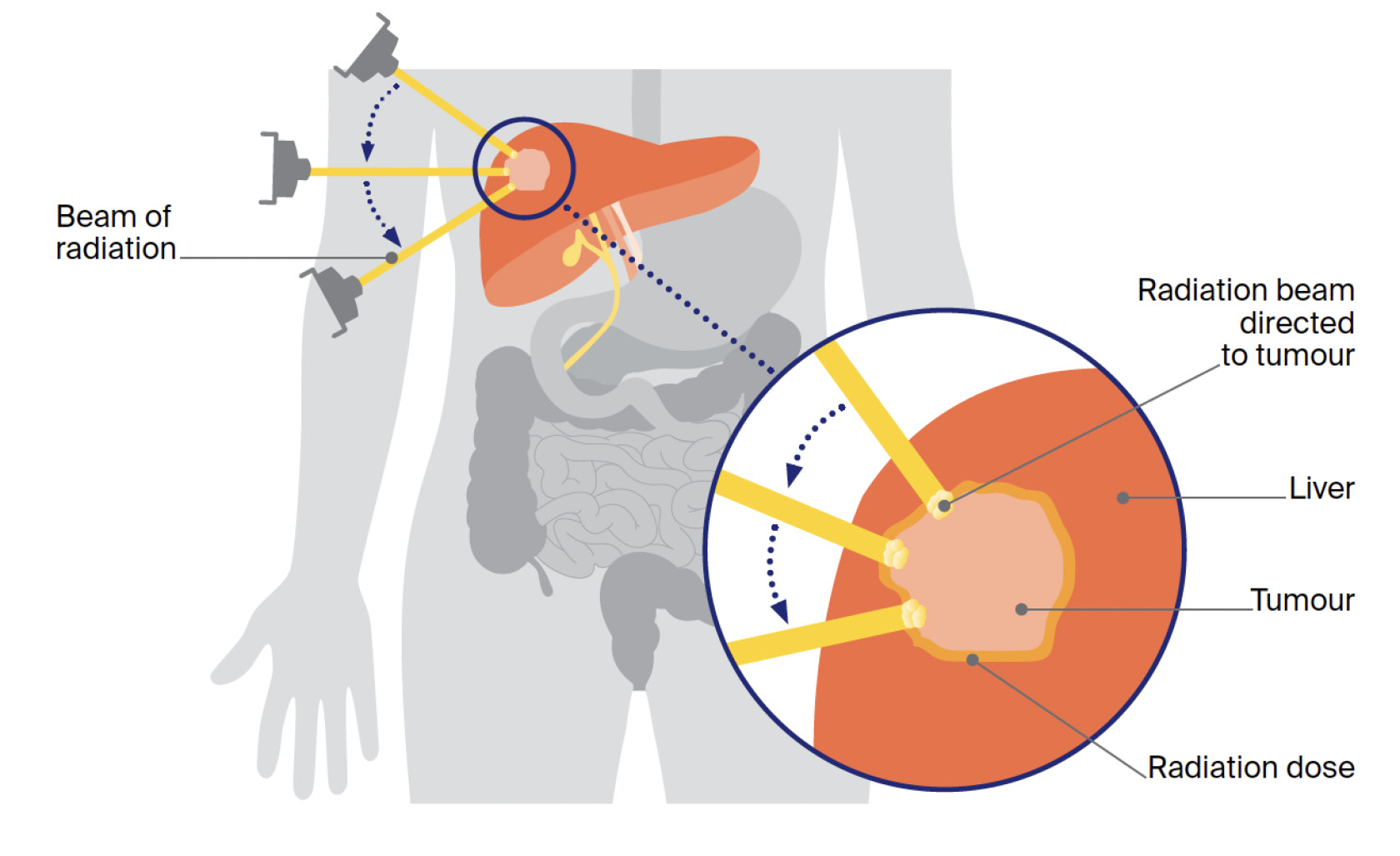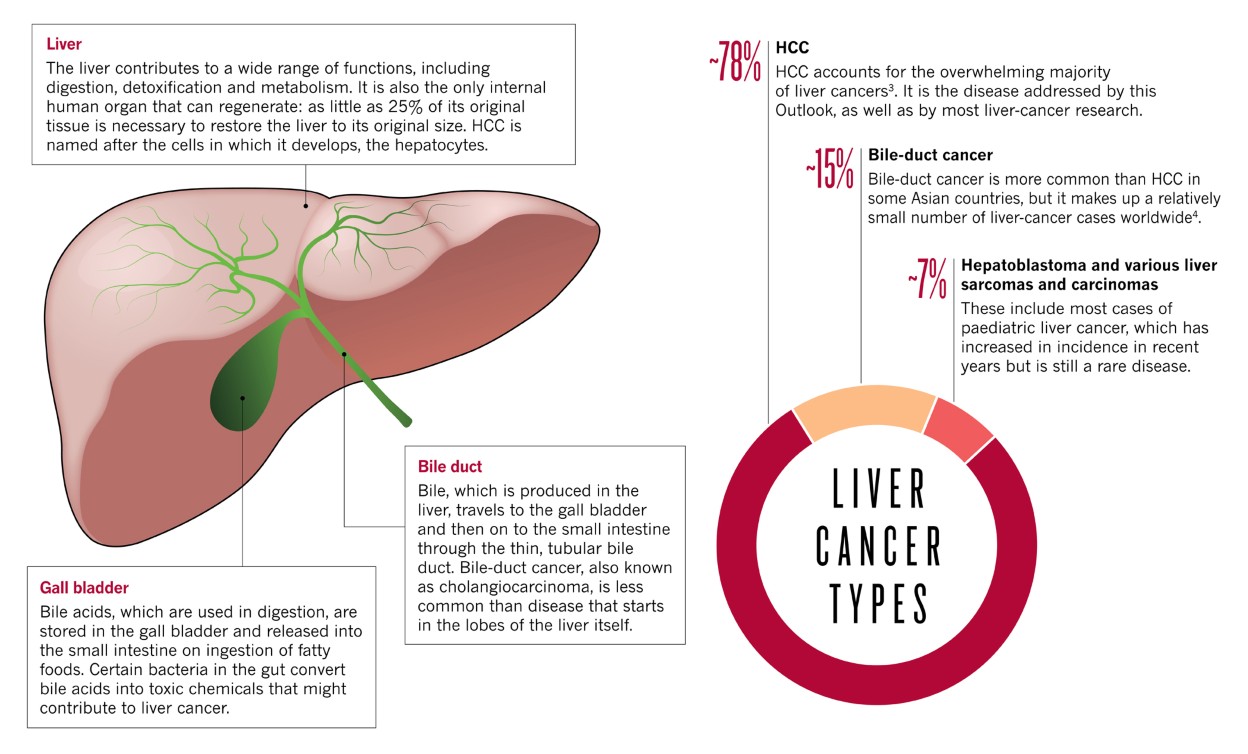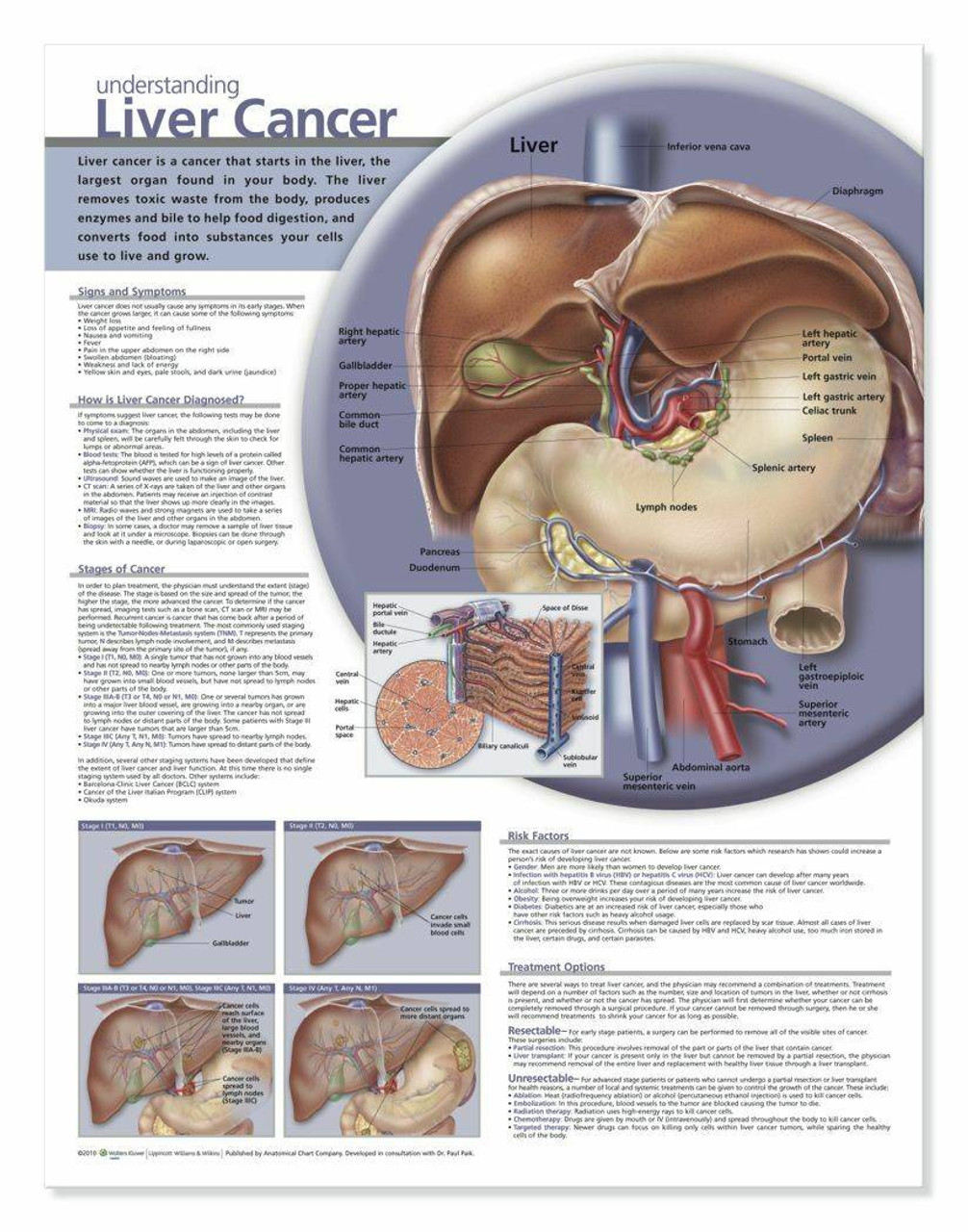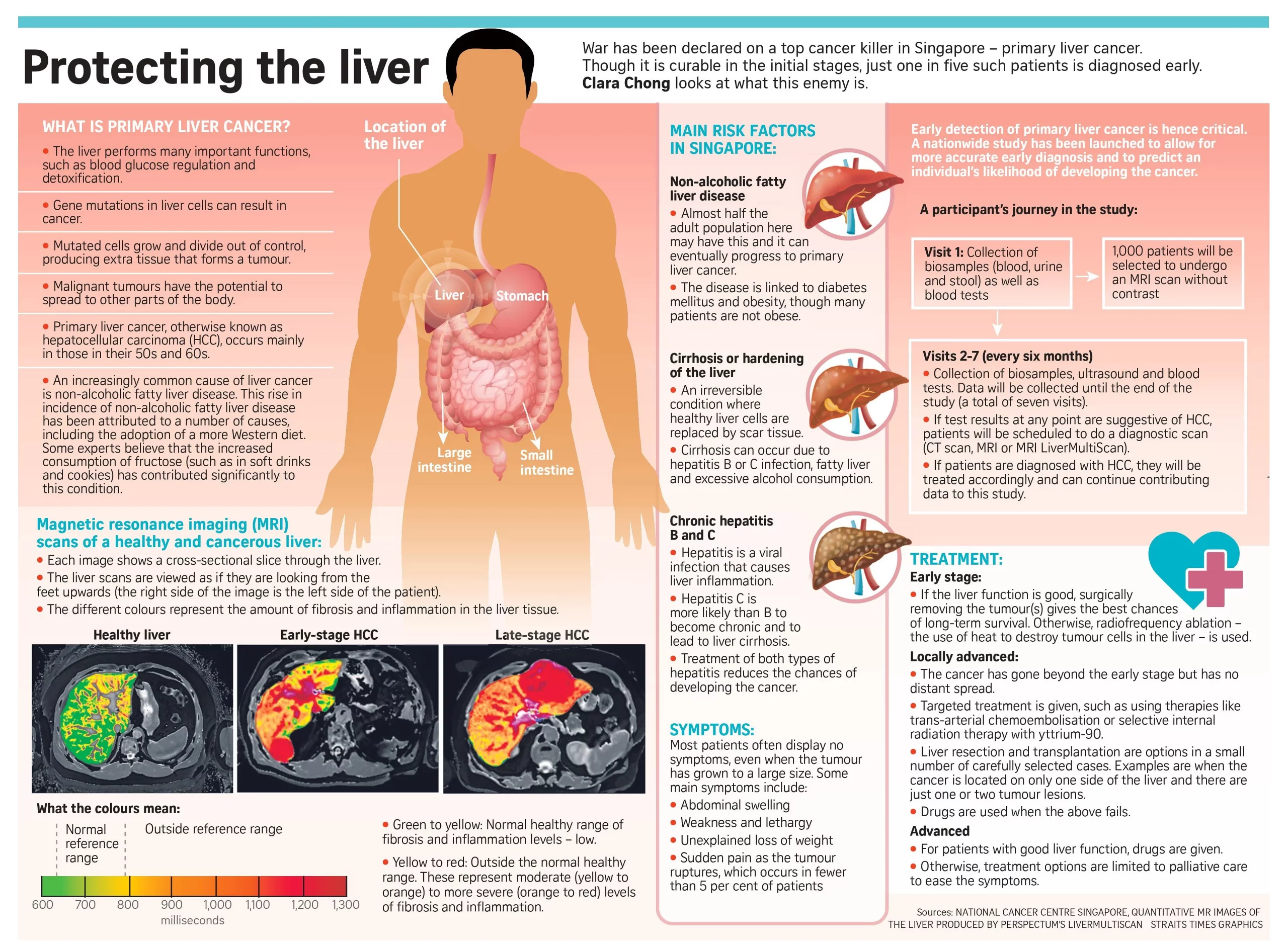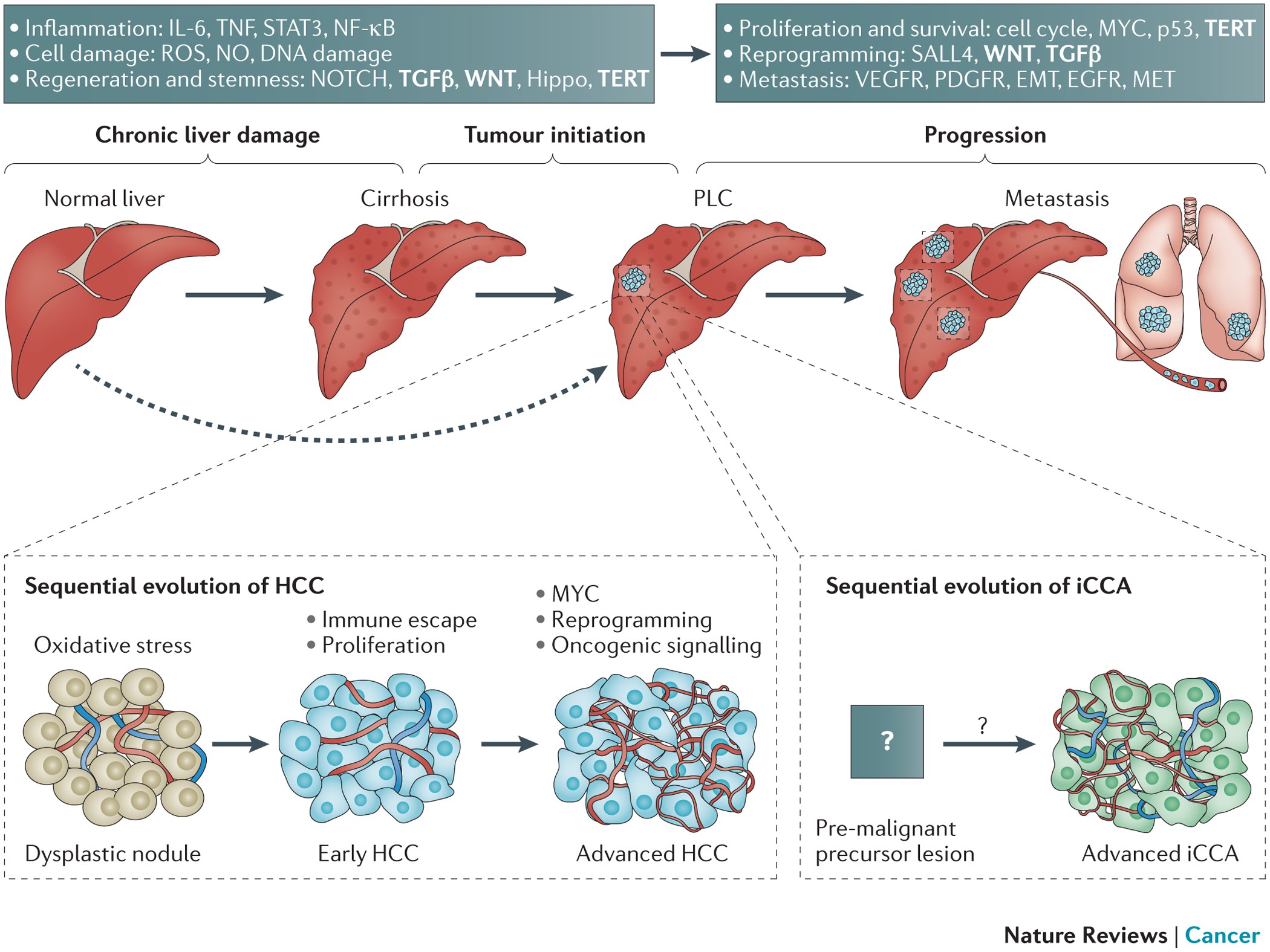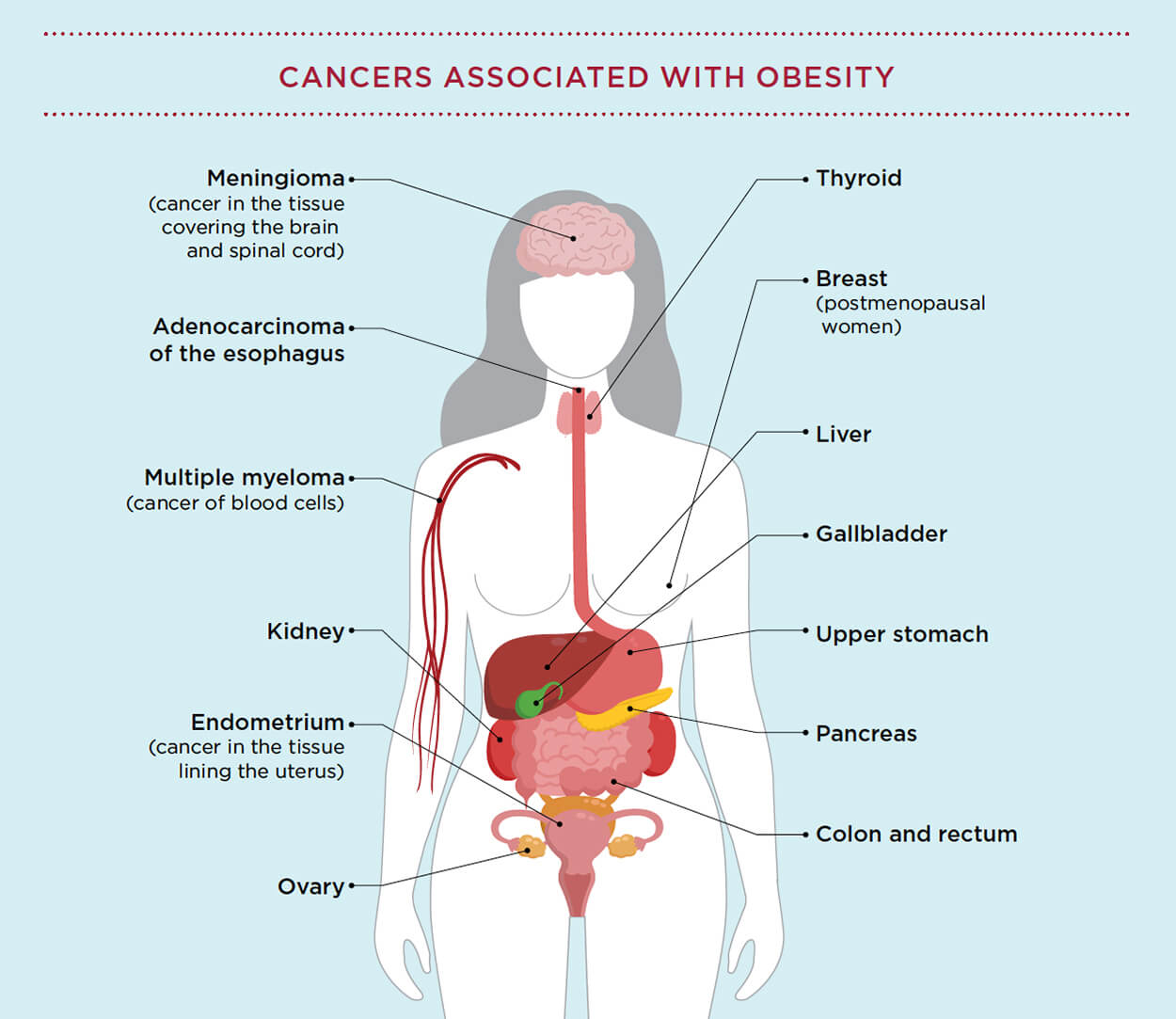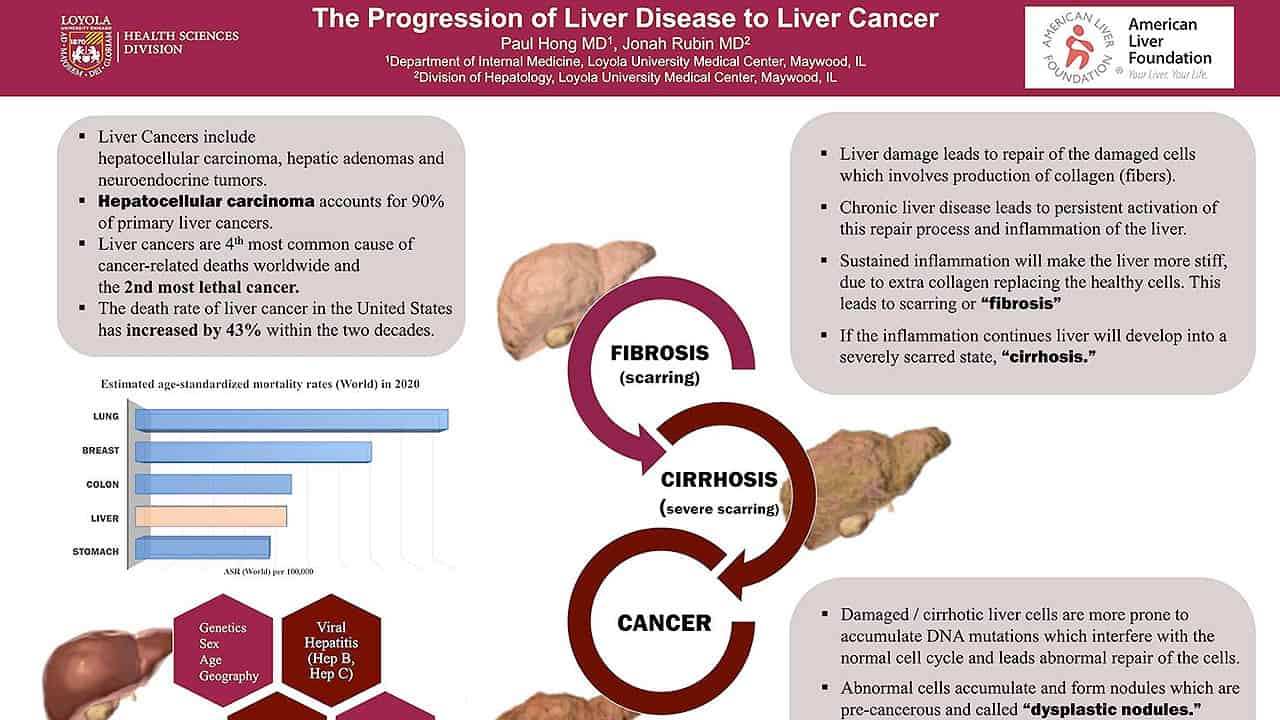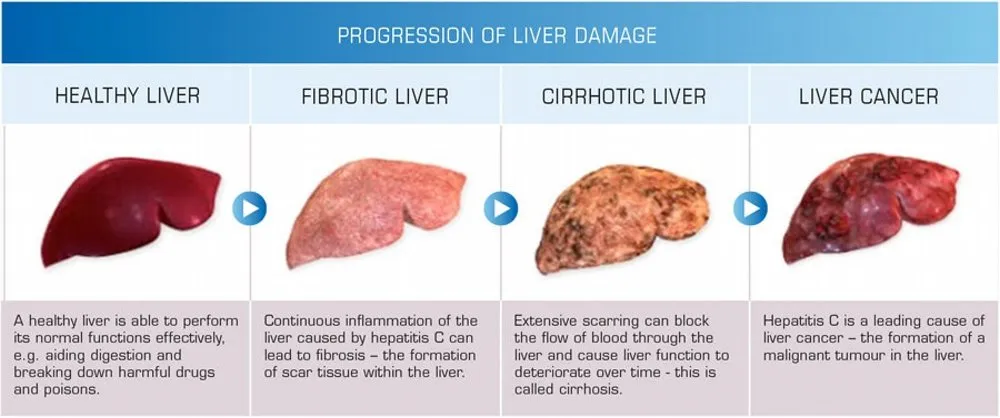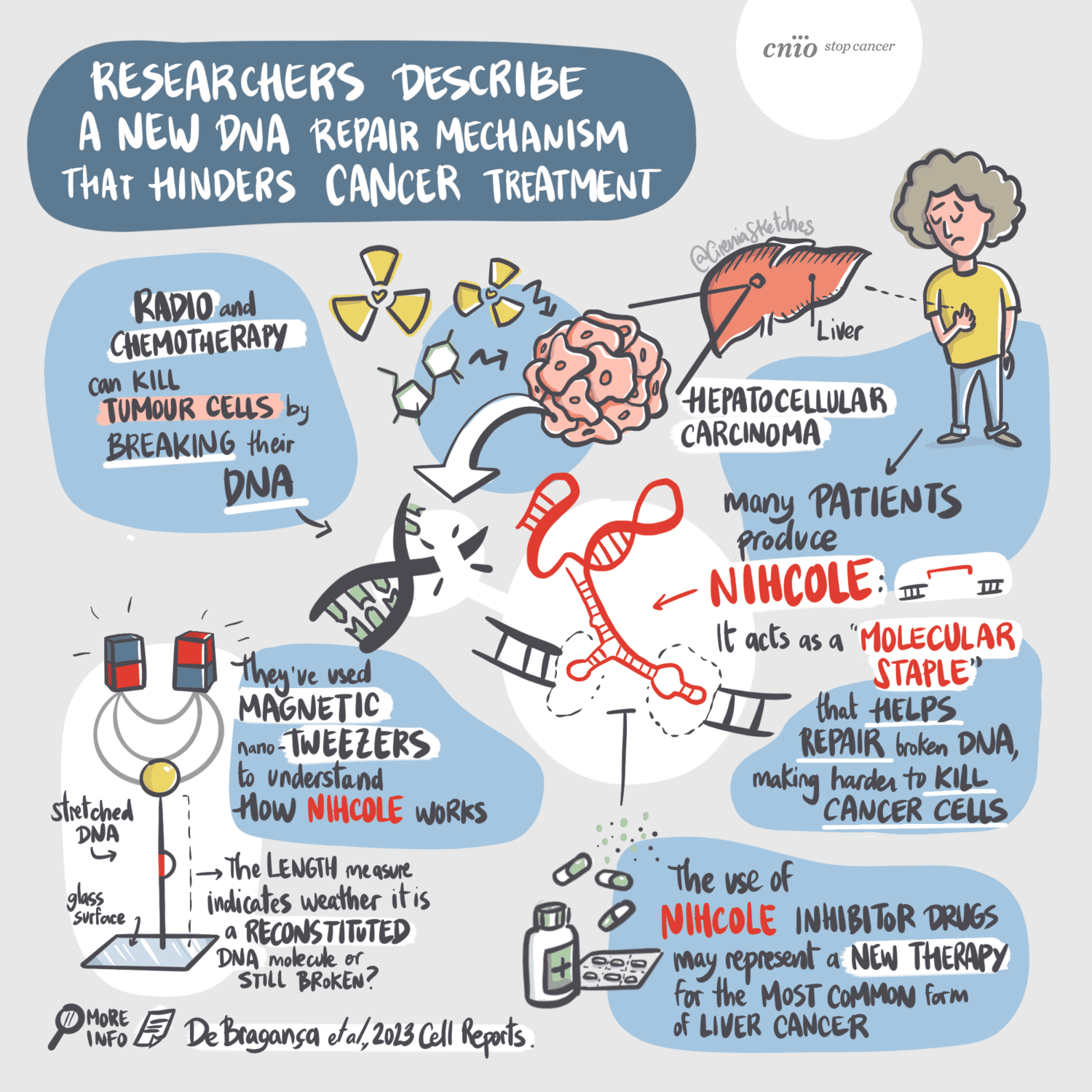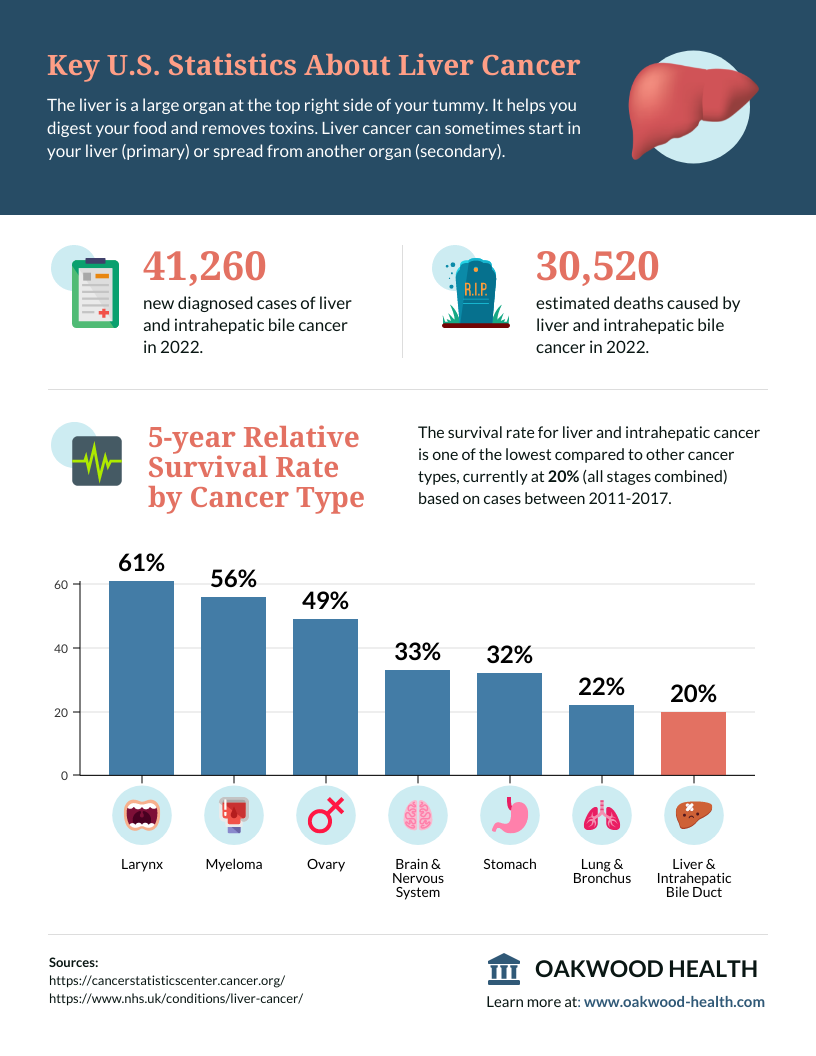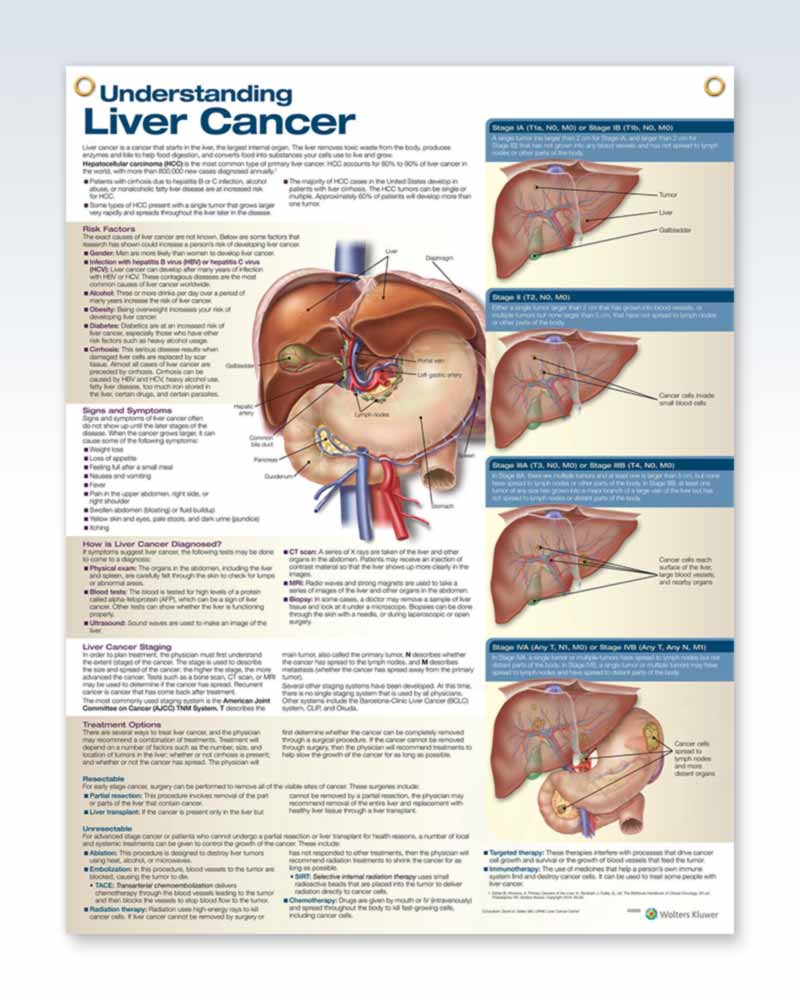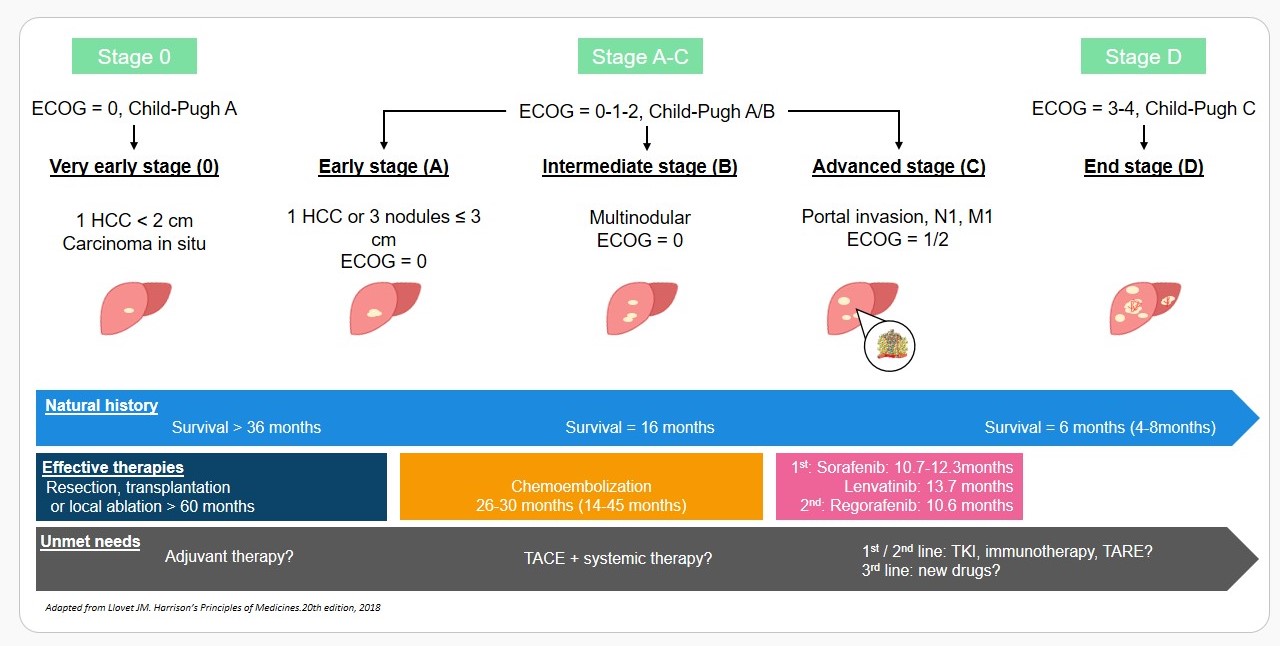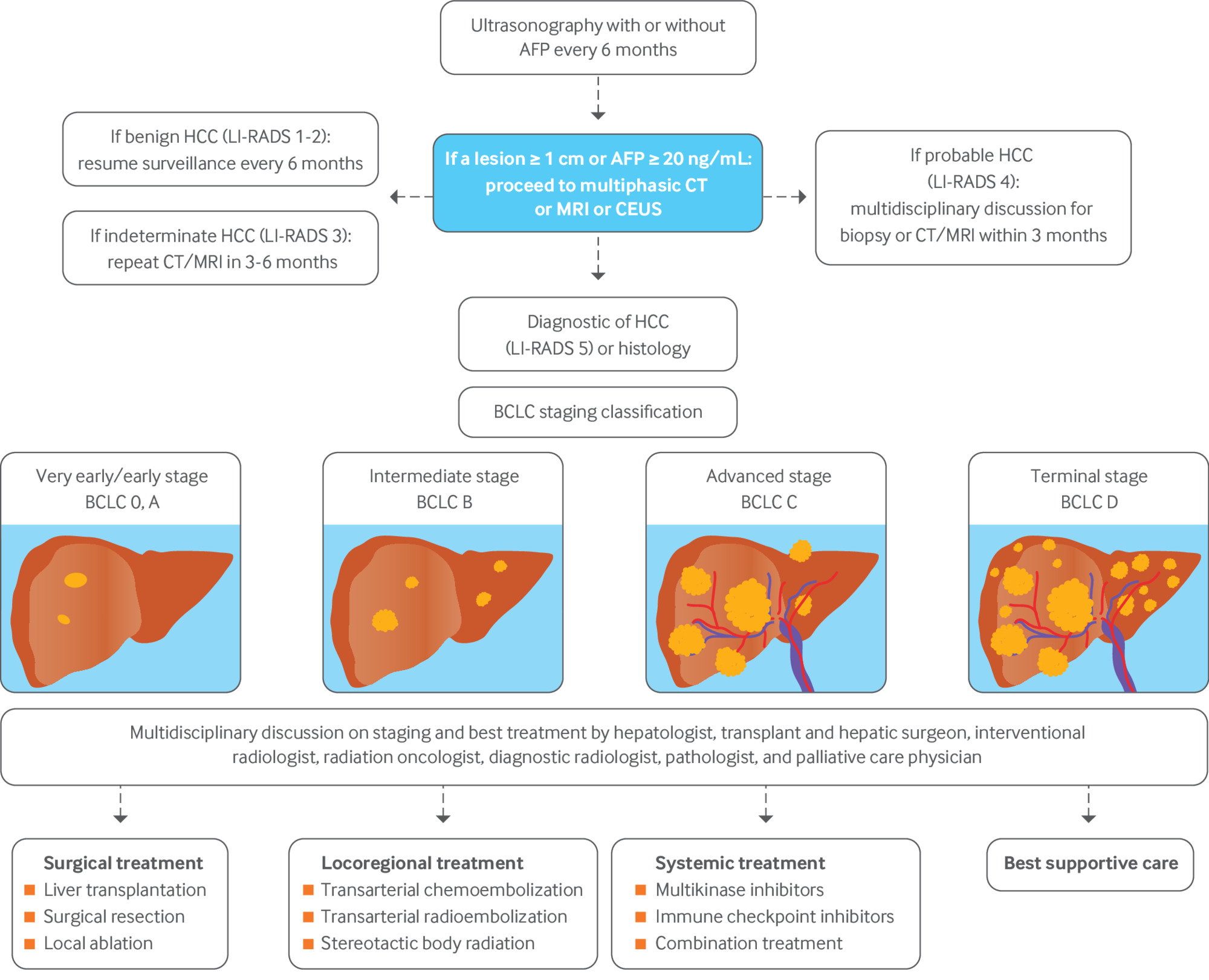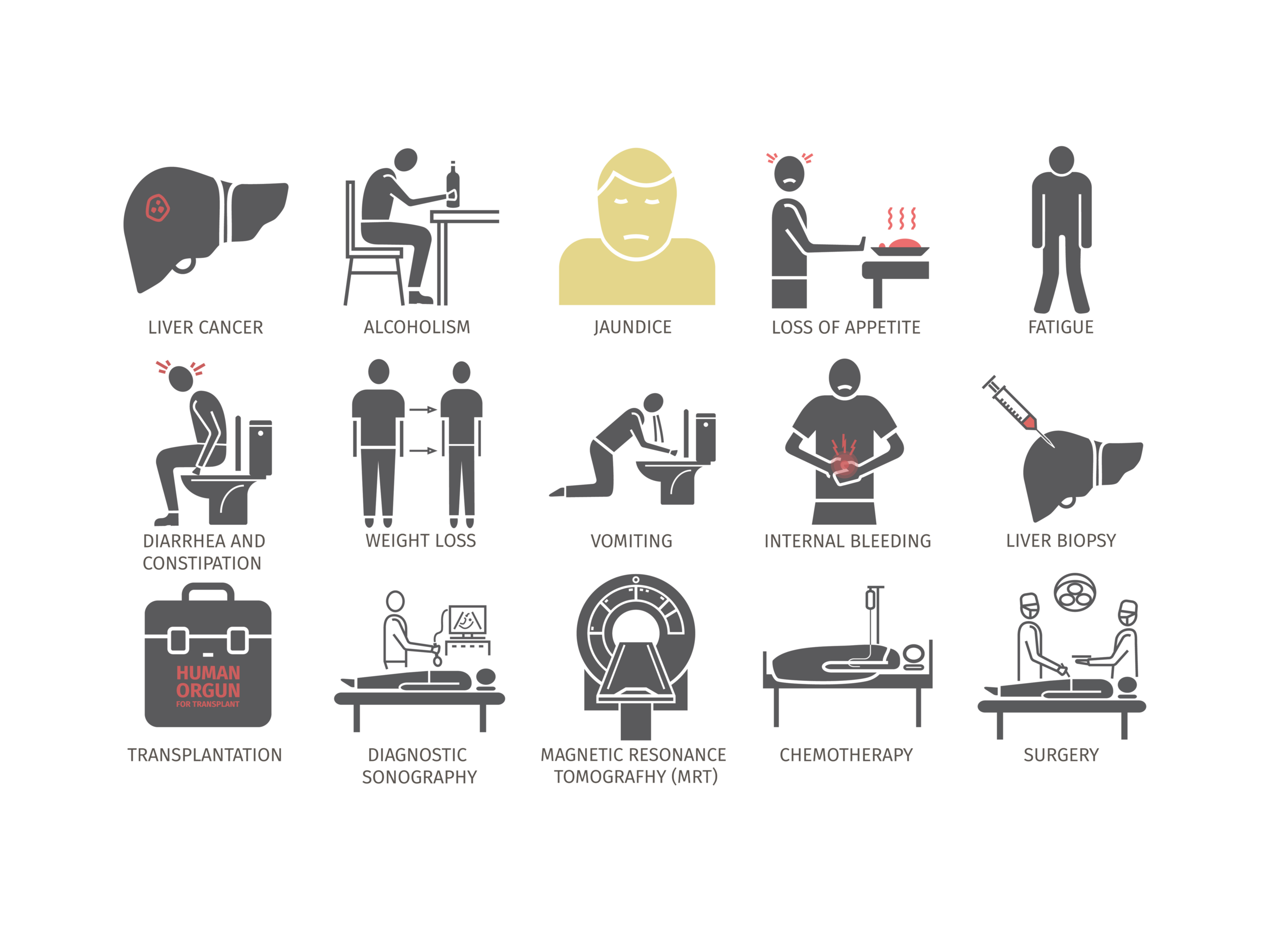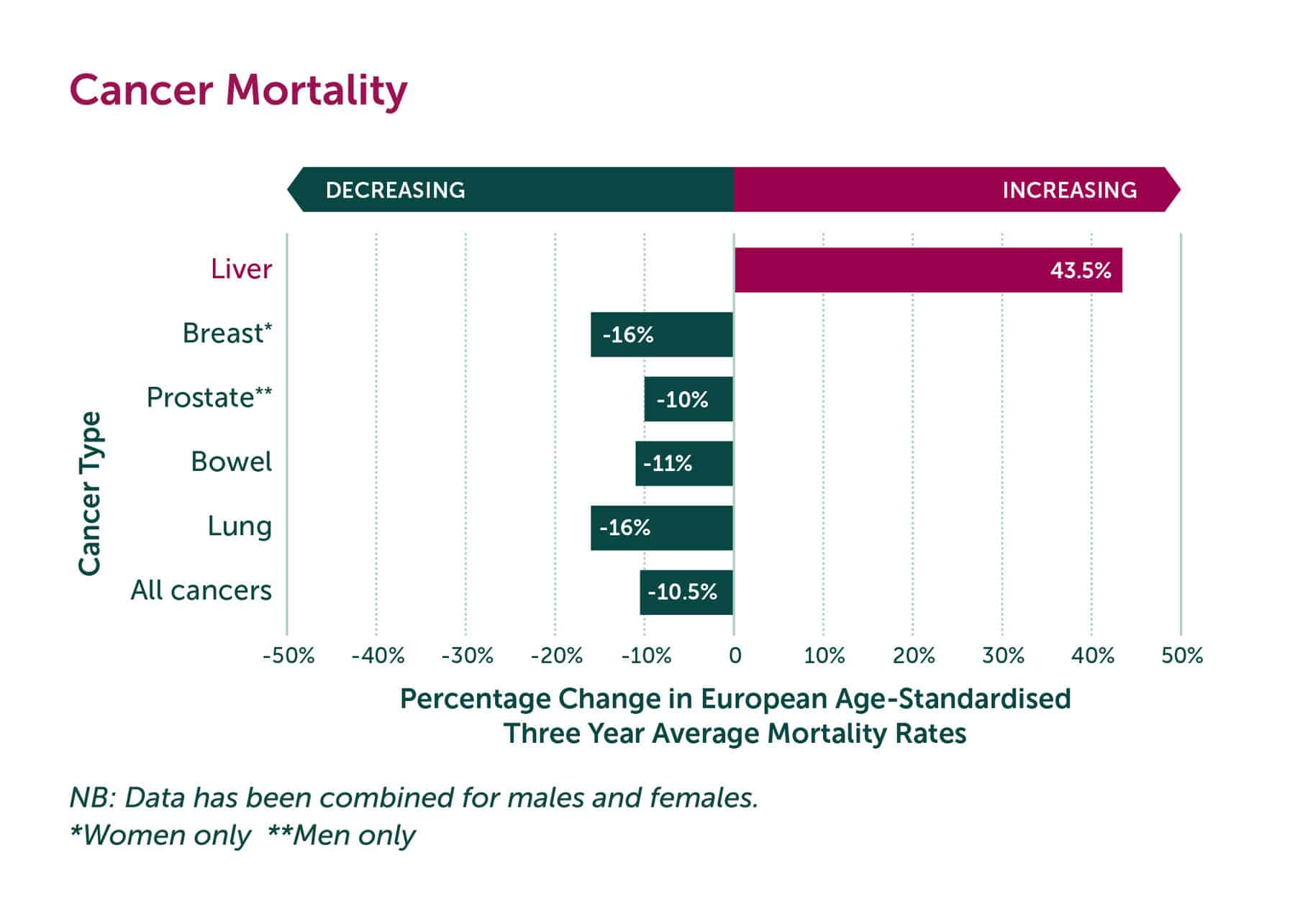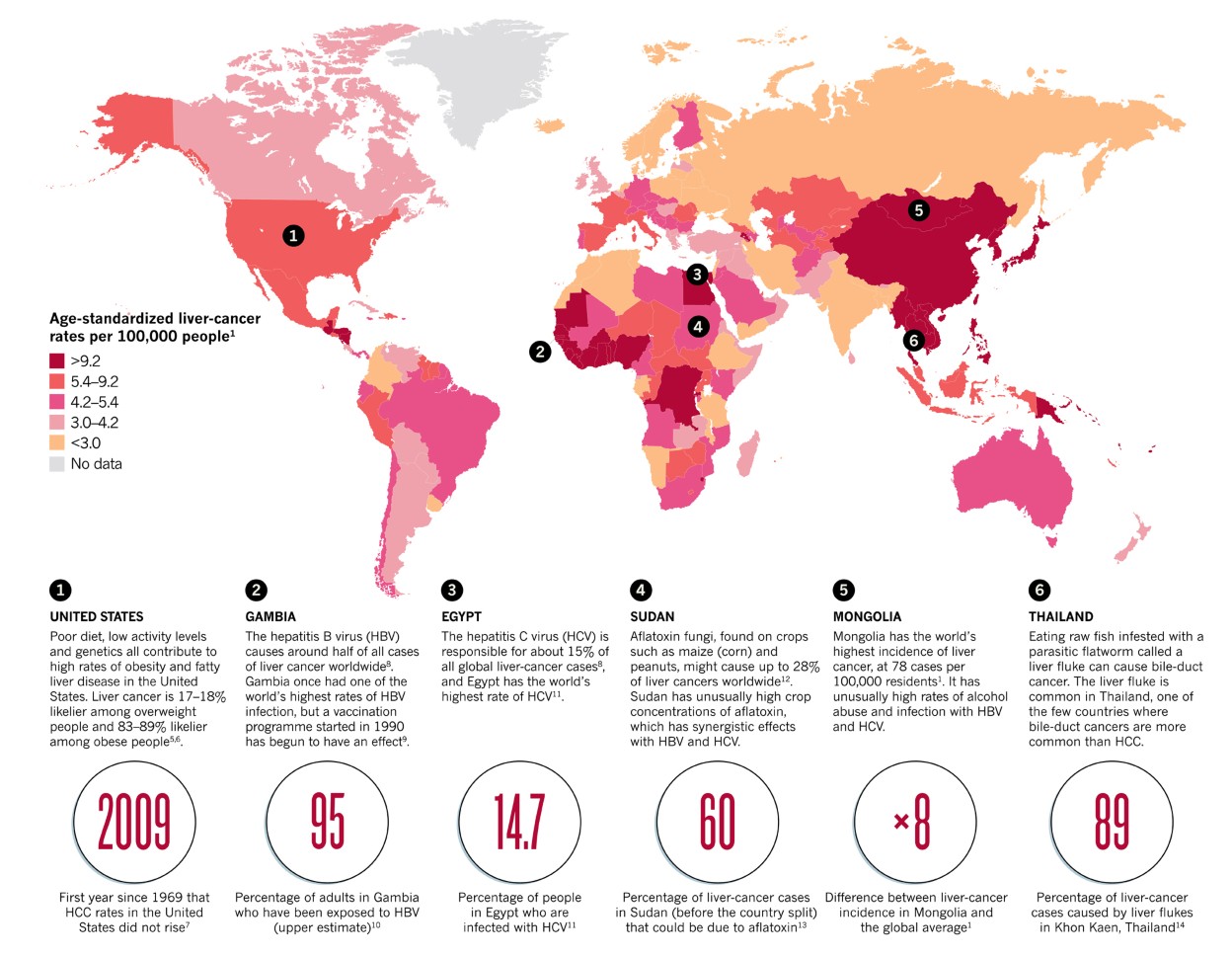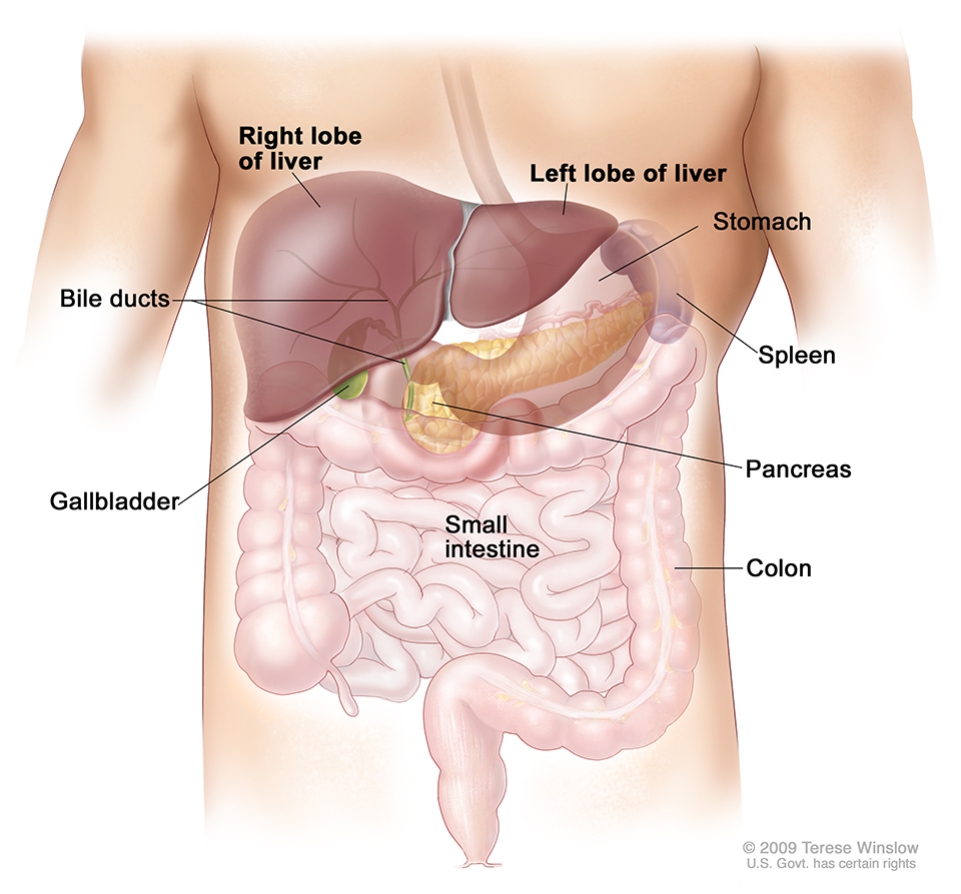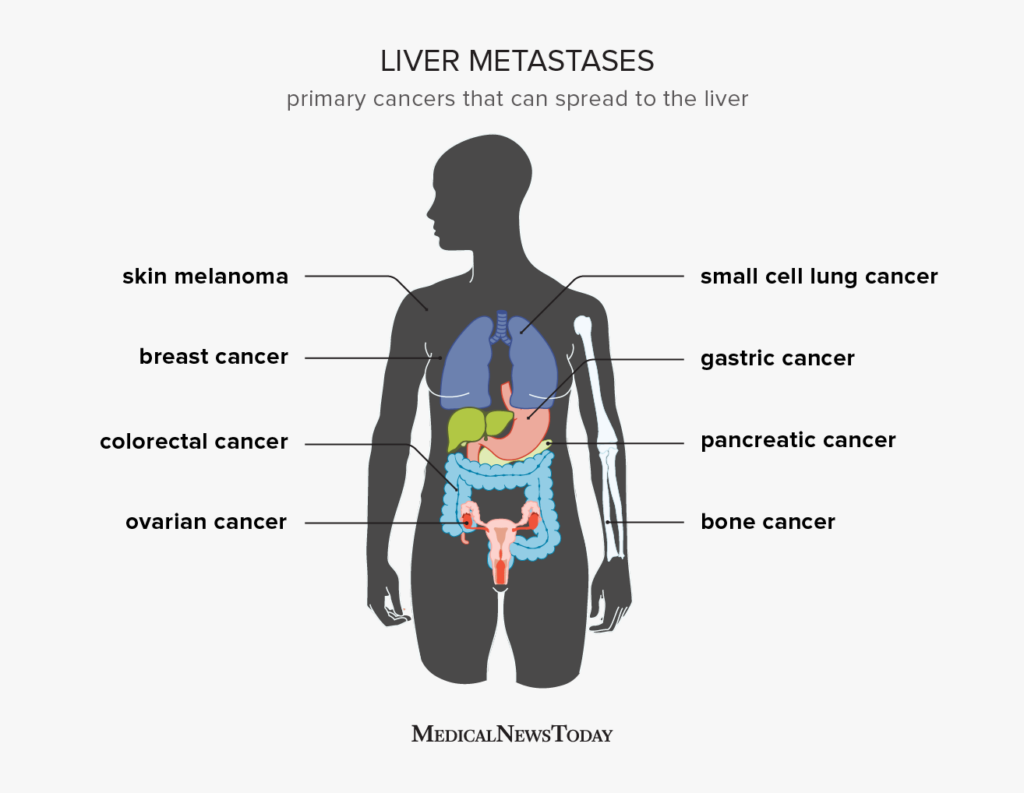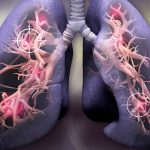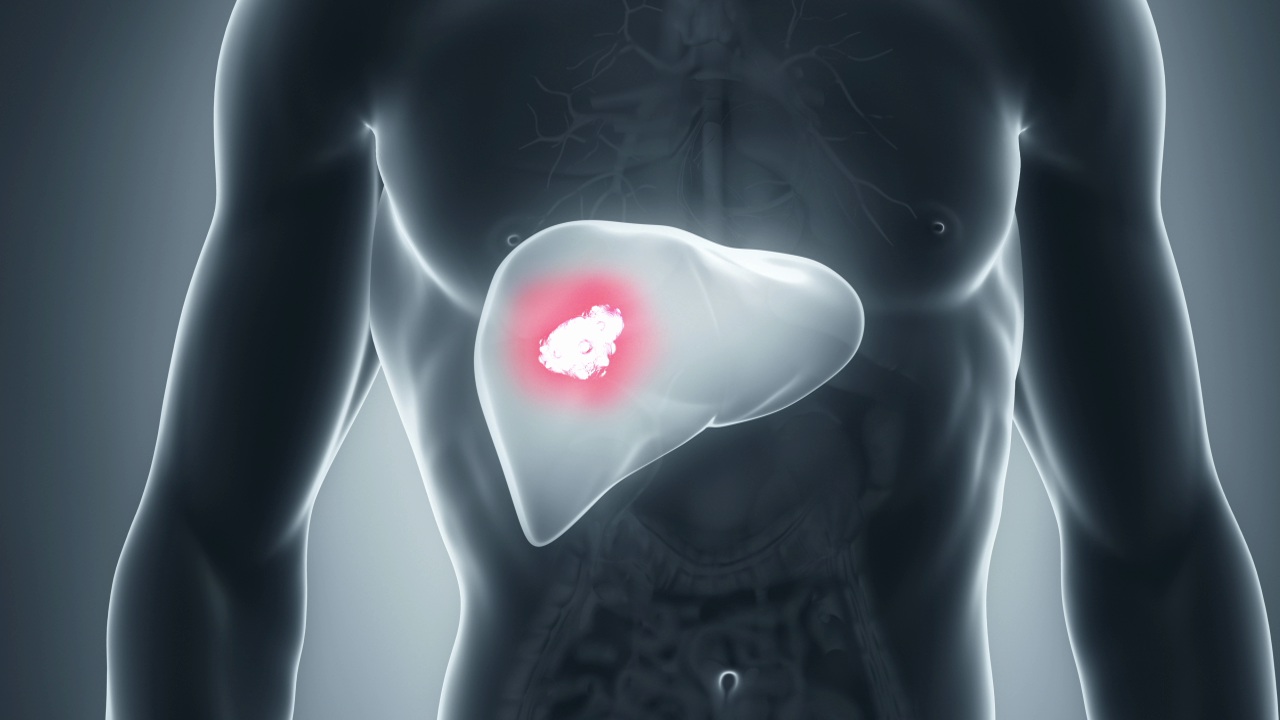
What is liver cancer?
Liver cancer is a cancer affecting the cells of the liver – the largest organ in the body. It is the sixteenth most common type of cancer in Australia. While it is the seventh leading cause of cancer deaths in Australia, it is relatively uncommon in this country. Improved treatments can offer better outcomes for people with liver cancer.
The liver sits just under the ribs, on the right side of the abdomen. It manufactures bile and blood proteins, filters the blood, rids the body of harmful chemicals, and has other vital functions.
There are 2 main types of liver cancer — ‘primary’, which means the cancer started in the liver, and ‘secondary’, which means the cancer has spread into the liver from another part of the body.
Primary liver cancer
Most people with primary liver cancer have hepatoma or hepatocellular cancer. This begins in the main type of liver cell, known as a hepatocyte.
The cancer can occur as a single tumour and spread through the liver or it can start in many different cells across the liver.
Other types of primary liver cancer include:
- cholangiocarcinoma — or bile duct cancer, which starts in the cells lining the bile ducts
- angiosarcoma — a rare liver cancer that starts in the blood vessels
If primary liver cancer is not found early or treatment is unsuccessful, it can metastasise or spread to other parts of the body.
Secondary cancer in the liver
Most cancers that affect the liver have spread from elsewhere in the body. These are known as secondaries. These secondary cancers are named after the part of the body in which they started. Colon, breast, ovarian and lung cancers, as well as melanomas, are all cancers that can spread to the liver.
What are the symptoms of liver cancer?
Often people do not realise they have liver cancer until the disease is advanced. Symptoms of liver cancer include:
- feeling very weak and tired
- unexplained weight loss
- loss of appetite
- nausea and vomiting
- pain in your upper right abdomen
- a lump on the right side of the abdomen, below the rib cage
- pain in the right shoulder or the upper back, around the right shoulder blade
- swelling of the abdomen (ascites)
- yellowing of skin and eyes (jaundice)
- pale, chalky bowel motions
- fever
What causes liver cancer?
Doctors do not always know what causes primary liver cancer. The risk of getting primary liver cancer is greatly increased if you have a chronic hepatitis B or hepatitis C infection that has caused permanent scarring or damage to your liver, known as cirrhosis.
You are also more likely to develop primary liver cancer than other people if you:
- have scarring of, or injury to, the liver
- drink a lot of alcohol
- smoke
- have certain inherited diseases, such as haemochromatosis or Wilson’s disease
- have autoimmune disorders that damage the liver.
- have type 2 diabetes
- have non-alcoholic fatty liver disease
- have obesity
- have been exposed to some chemicals
How is liver cancer diagnosed?
Your doctor will first examine you and ask about your physical symptoms. If there is a possibility of liver cancer you may then need tests including blood tests and imaging (such as magnetic resonance imaging (MRI) or computerised tomography (CT) scans, or a PET-CT scan). You may have a biopsy to remove a sample of liver tissue for testing. This is done with a thin needle under local anaesthetic.
If you have secondary liver cancer, you may have other tests to find out where the primary cancer is.
If liver cancer is confirmed, you are likely to be referred to a gastroenterologist, surgeon or oncologist (cancer specialist). You may need further tests to find out what stage your cancer is at. These could include bone scans and examinations of the bowel, stomach and breasts.
amet, consectetur adipiscing elit. Ut elit tellus, luctus nec ullamcorper mattis, pulvinar dapibus leo.
How is liver cancer treated?
A team of medical specialists, nurses and other health professionals is likely to coordinate your liver cancer treatment.
The type of treatment you are given will depend on the stage of your cancer and your overall health, medical history, age and personal preferences.
Often a combination of therapies is used. Treatment options include destroying or slowing the growth of cancer through heating or freezing (ablation) or surgery to remove the cancer.
The growth of cancer can also be slowed or stopped with chemotherapy or radiation therapy.
Tumour ablation
Radiofrequency ablation is used mainly for small primary tumours. The doctor uses high frequency radio waves and microwaves. Thin needles are inserted into the tumour and heat is generated by the current. The heat destroys cancer cells.
Less commonly, the doctor might insert a special probe into the tumour and release liquid nitrogen to freeze it (called cryotherapy). Pure alcohol can also be injected to kill the cancer cells.
Radiation therapy
Your doctor may suggest selective internal radiation therapy (SIRT or radioembolisation) if surgery is not possible. Using a thin tube inserted into an artery, the doctor releases tiny radioactive beads (microspheres) into the liver. These beads block the blood supply to the tumour and deliver high-dose radiation.
Chemotherapy and TACE
Chemotherapy uses drugs to stop, shrink or slow the cancer. If your liver cancer has spread or you have secondary cancer, chemotherapy may be given through a vein to treat the whole body. This also affects healthy cells.
If you have primary cancer, you may be offered ‘transarterial chemoembolisation’ (TACE), a more targeted form of chemotherapy. The doctor inserts a tube into an artery supplying the liver to deliver a concentrated dose of anti-tumour drugs. A substance is also used to partly block the artery, starving the cancer cells of blood.
Surgery
Surgery is only suitable for a single tumour that has not grown into blood vessels. The type of surgery will depend on the size and location of the liver cancer.
Surgery is mainly used to remove small primary tumours. Surgery to remove part of the liver is called partial hepatectomy. The liver can still work well even if up to 80% has been surgically removed. It has a remarkable ability to recover and can grow again after surgery.
If the whole liver needs to be removed, you may be offered a liver transplant. You will need to continue your cancer treatment as it can take months or years to get a suitable donor liver.
Biological therapy
There are treatments that stop cancer cells growing or working, or help the body’s own immune system to destroy them. Biological therapy can be used for both primary and secondary liver cancers.
Endoscopic stent placement
If there is a build up of bile in the liver, because the cancer is blocking a bile duct, you may need a thin tube (stent) placed in the liver to drain the bile.
Palliative care
If you have advanced or late-stage liver cancer, you may opt to have palliative care instead of trying to cure the disease. This can help reduce your symptoms, relieve pain and improve your quality of life.
Looking after yourself
If you have liver cancer, try to eat healthy food and stay active during treatment. Complementary therapies such as remedial massage may assist. Relaxation techniques can reduce anxiety and improve your mood.
Before agreeing to any treatments, discuss the benefits and risks. Be prepared to ask for a second opinion from another specialist or doctor.
Can liver cancer be prevented?
One way of preventing liver cancer is not to get hepatitis B or C. You can have a vaccination against hepatitis B. If you are exposed to these infections, for example, if you have sex or share needles with someone who has hepatitis, you should be tested to make sure you are not infected.
If you have hepatitis B or C, then your doctor may prescribe antiviral drugs to suppress the infection and reduce your risk of getting liver cancer. Your doctor may also monitor you regularly to detect problems early.
